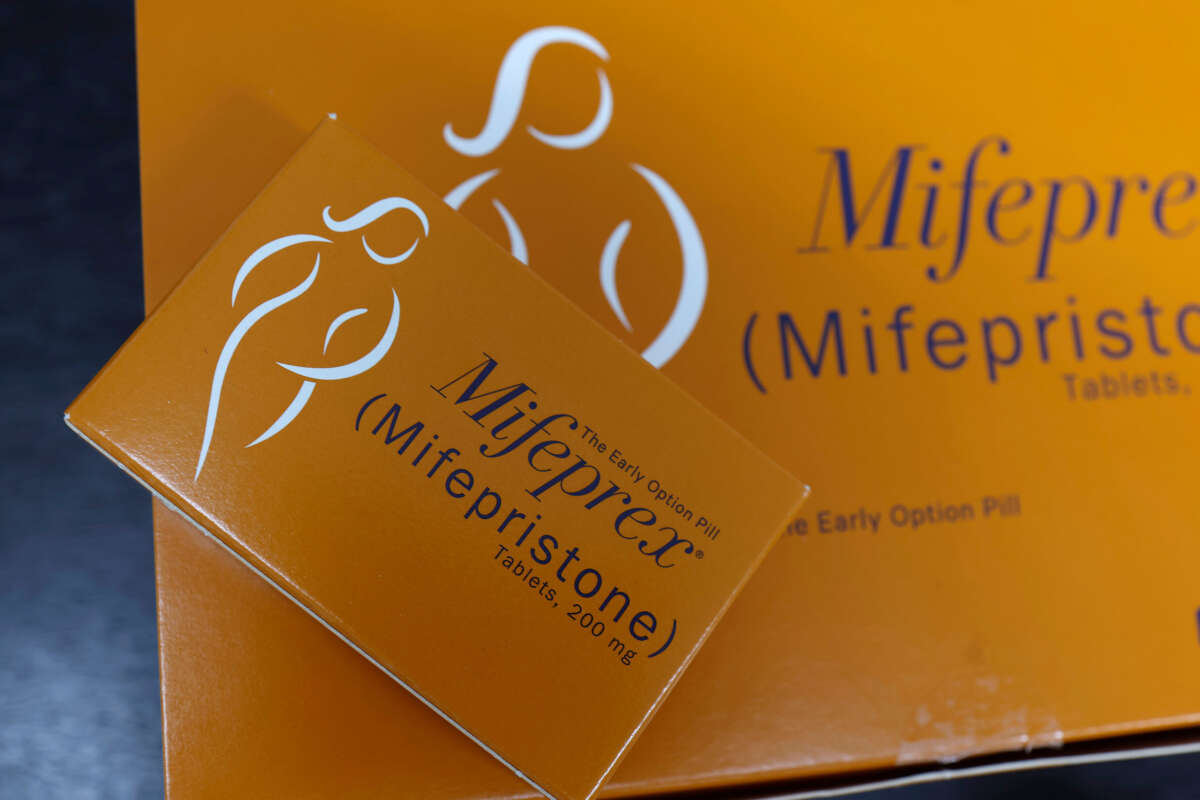Did you know that Truthout is a nonprofit and independently funded by readers like you? If you value what we do, please support our work with a donation.
A grand jury in Baton Rouge, Louisiana, has indicted and issued arrest warrants for a New York physician who prescribed abortion pills to a pregnant minor in Louisiana, which has one of the strictest abortion bans in the country.
The case directly targets the most common abortion method in the U.S. and challenges protections for out-of-state providers in Democratic-led states.
In addition to physician Margaret Carpenter and her company, Nightingale Medical, PC, the grand jury unanimously issued an indictment and an arrest warrant for the minor’s mother.
“Extremists hope this case will cause a chilling effect, further tying the hands of doctors who took an oath to care for their patients,” Chasity Wilson, executive director of the Louisiana Abortion Fund, said in a statement following the action.
In 2024, a mother from Port Allen, Louisiana, ordered abortion medication online from Carpenter for her daughter. According to Louisiana District Attorney Tony Clayton, the abortion medication was requested solely through an online questionnaire. The pills were then mailed to the woman, who subsequently gave them to her daughter.
After taking the pills, the girl experienced a medical emergency while alone, called 911, and was taken to the hospital. During the emergency response, a police officer learned about the abortion medication, prompting an investigation that led them to Carpenter. Authorities subsequently referred the case to Clayton’s office.
Carpenter is a co-founder of the Abortion Coalition for Telemedicine (ACT), which supports clinicians providing safe, timely, and affordable telemedicine abortion care nationwide. Following her indictment, ACT condemned the charges as “a disturbing pattern of interference with women’s rights,” stating, “this state-sponsored effort to prosecute a doctor providing safe and effective care should alarm everyone.”
This is not the first legal action against Carpenter. In December, Texas Attorney General Ken Paxton filed a civil lawsuit accusing her of sending abortion pills to Texas. Unlike the Louisiana case, however, the Texas lawsuit did not include criminal charges.
Since the U.S. Supreme Court overturned Roe v. Wade in 2022, Louisiana has enforced a near-total abortion ban, with no exceptions for rape or incest. Under this law, doctors who perform unauthorized abortions — including those involving medication — face up to 15 years in prison, $200,000 in fines, and the revocation of their medical license. In a further crackdown, Louisiana recently classified the abortion and miscarriage management medications mifepristone and misoprostol as “controlled dangerous substances.” While still legal, the reclassification makes the drugs harder for medical providers to access. Possessing them without a valid prescription can lead to up to five years in jail and a $5,000 fine, though pregnant people who obtain them for personal use remain exempt.
However, a recent survey found that despite restrictions, thousands of women in Louisiana continue to access abortion care. In fact, more patients obtained abortions in the state in 2023 than in 2020, before the state’s abortion ban was enacted. In the first half of 2024, telemedicine accounted for 60 percent of abortions in Louisiana.
Paxton and Clayton have made it clear they are targeting out-of-state providers in an effort to restrict access to abortion medication in their anti-abortion states. They are also testing the limits of the current reproductive rights landscape by challenging laws in blue states that protect providers who prescribe abortion pills across state lines.
Specifically, Carpenter’s indictment may be the first major test of New York’s shield laws, which protect telehealth providers who prescribe abortion pills to patients in states with bans. New York Attorney General Letitia James recently affirmed the state’s support for abortion providers, stating, “We will not allow bad actors to undermine our providers’ ability to deliver critical care.”
New York Gov. Kathy Hochul has also made it clear that she will reject any extradition requests from Louisiana for Carpenter. In a video statement, she declared, “I will never, under any circumstances, turn this doctor over to the state of Louisiana under any extradition requests.”
However, Clayton has said that,“You can’t hide behind the borders of New York and ship pills down here to commit abortions in Louisiana.”
If Carpenter were to be extradited or find herself in Louisiana, she would be arrested and arraigned.
Press freedom is under attack
As Trump cracks down on political speech, independent media is increasingly necessary.
Truthout produces reporting you won’t see in the mainstream: journalism from the frontlines of global conflict, interviews with grassroots movement leaders, high-quality legal analysis and more.
Our work is possible thanks to reader support. Help Truthout catalyze change and social justice — make a tax-deductible monthly or one-time donation today.
